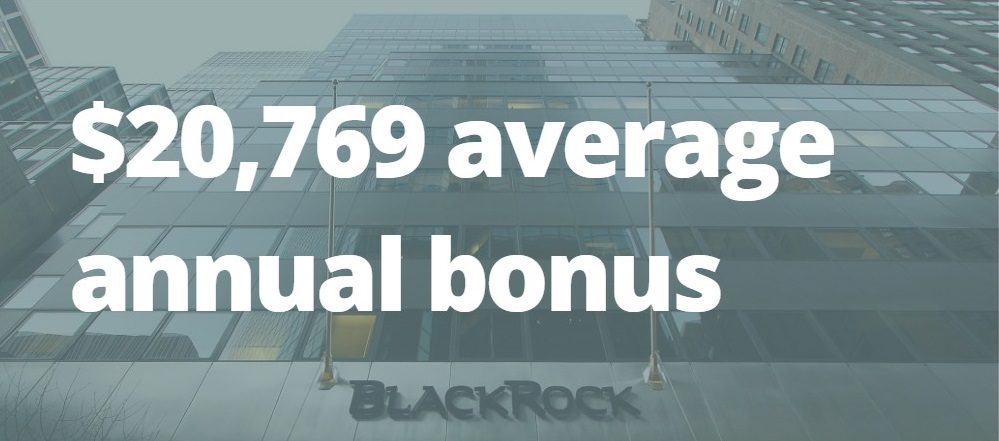Hot Jobs for MBAs: Becoming a Pricing Analyst

MBA graduates looking to apply their skills to a fast-growing and high-paying career may be interested in pursuing a role in Pricing Analysis. Named among the 100 best jobs in America by CNN, working as a Pricing Analyst is a perfect way for an MBA graduate to make use of their strong education combining skills in marketing, finance, and analytics.
With a predicted 10-year job growth of 41.2 percent and roughly 280,000 total jobs available, business students who think they might be interested this fast-growing career can start preparing while still in school through specialized study in marketing or finance. Armed with the special skills in data analysis in addition to the strong business background of an MBA, students looking to enter the field after graduation will have a competitive advantage as they begin their career.
We’ve rounded up the most important things to know about a career in Pricing Analysis to help you decide if it’s the right role for you.
What is a Pricing Analyst?
A company’s pricing analyst is responsible for figuring out the appropriate price for a business to place on a product or service. Using a variety of data and different metrics, the Pricing Analyst will determine the perfect price that will both appeal to consumers and produce an appropriate profit for the company.
Pricing Analysts must be able to track marketplace trends and implement a strategy that will benefit both the company and consumer. Someone in this role must be able to effectively communicate to a number of other departments such as supply chain, sales, marketing, finance, and be able to work with these groups in making pricing recommendations and decisions based on their analysis.
Pricing Analysts may be needed at wide variety of companies and organizations, ranging from construction companies, colleges and universities, banks and financial institutions, pharmaceutical companies, and more.
What Skills Does a Pricing Analyst Need?
Those who succeed in the role of Pricing Analyst typically have strong skills in mathematics, analytical thinking and problem solving. It is also important that Pricing Analysts are able to effectively communicate, as they are often required to explain their research and analysis to others in order to make important decisions.
Other skills employers may seek in a Pricing Analyst may be:
- An interest and skill working with numbers and data.
- Being a detail oriented and proactive worker.
- Have the ability to work with minimal supervision.
- Experience in back-office and billing systems and database management programs,
Pricing Analyst Salary
Pricing Analyst salaries, according to PayScale, may vary according to a number of factors, such as education, terms of the job, and type of employer. On average, Pricing Analysts can earn anywhere from $52,000-61,000 depending on their level of experience. In cities like New York and Boston, that number is slightly higher.
A recent study from Deloitte found even more impressive figures: 62 percent of respondents in a survey of pricing professionals reported salaries of greater than $100,000 and 83 percent of respondents said they were also eligible for an annual bonus.
EVEN MORE MBA JOBS: Verizon is on the Lookout for MBA Students and Grads
MBAs For Pricing Analysts
While most MBA programs do not offer a direct concentration in pricing analysis, a number of programs still provide specialized pricing education through other departments, like finance and business analytics. Below are just a few examples of pricing-related courses available at some of the top MBA programs in the country:
-
Scheller College of Business – Georgia Institute of Technology
The Scheller College of Business offers a course in pricing strategy as part of their Business Analytics MBA concentration. The course, marketing Analytics and Pricing Strategy, helps students gain skills in making effective pricing decisions through the understanding of important economic and analytical concepts associated with customer behavior and competition.
-
The Wharton School – University of Pennsylvania
FNCE717, or Financial Derivatives, at the Wharton School focuses students on making strategic corporate decisions, particularly when it comes to pricing. Students will learn several different approaches to pricing and how to apply such skills for investment and risk-management.
-
Rutgers School of Business, Newark and New Brunswick
The MBA program at Rutgers’ Newark and New Brunswick location offers a class in Supply Chain Pricing Strategy. The course recognizes the importance of pricing in driving profits and the extreme negative impact poor pricing decisions can have. Students will learn how to approach pricing from both a strategic and tactical level and be able to apply it to a number of fields and industries.
Do You Actually Need an MBA for the Job?
While an MBA is not necessarily a requirement of all Pricing Analyst jobs, it is by far the most common degree held by those in this role. According to the aforementioned Deloitte survey, 43 percent of respondents held MBA degrees, while just 26 percent—the next highest percentage—held undergraduate degrees in business. Earning an MBA and demonstrating specialized coursework in pricing will give those in the field a competitive edge and open the door to higher level management positions in the field.
Tuition Cost vs. Starting Salary: Atlanta

One of the most important things a prospective MBA can look for when choosing a business school is the program’s return on investment. Return on investment, or ROI, is the most common profitability ratio, and an easy way to determine if an MBA is “worth” your time and money.
According to a recent review of 129 schools from U.S. News & World Report, graduates from a third of the institutions earned an average starting salary and bonus of more than $100,000, with the overall average for all schools coming in at $91,940. MBA Class of 2015 graduates typically left school with just over $50,054 in debt, according to the same data.
Most business schools publish employment records with average salaries for different industries, so prospective MBA students can use these numbers to project future salaries. Lucky for you, we’ve compiled these figures some of the Atlanta metro‘s premiere business schools.
The Atlanta MBA Return on Investment
Clark Atlanta University School of Business
A full-time MBA at the Clark Atlanta School of Business requires 60 credit hours of study, which totals up to $53,220 in tuition. Other costs also apply, including $1,008 in annual fees as well as books and supplies. To save some money for sibling students, Clark offers a Sibling Discount to a biological or legally adopted sibling currently enrolled at Clark Atlanta University. Siblings will receive a 33.3 percent discount after submitting a copy of both birth certificates, parent’s federal tax return and a simple application.
According to employment statistics provided by the school, MBA graduates earn an average base salary of $79,000 with a signing bonus of $12,250. Most graduates took marketing/sales jobs (59.7 percent), with finance/accounting (29.7 percent), human resources (7.4 percent), and operations (7.4 percent) following behind. In order to help place MBAs, the Atlanta University Center Consortium Career Planning and Placement Service (AUCC CPPS) offers students career planning and placement resources, plans on-campus recruiting events and hosts a database of contact information for over 1400 corporate, government and educational partners. They also host several on-campus recruiting sessions and career fairs.
Eugene W. Stetson School of Business & Economics – Mercer University
Full-time MBAs at Mercer’s Eugene W. Stetson School of Business & Economics pay $818 per credit hour, with total tuition for the program coming to $29,448 with some additional minimal costs, such as a technology fee. Students can visit the university’s Office of Student Financial Planning to receive updated financial assistance information, including information on federal student loan programs.
According to U.S. News, Mercer MBAs earn an average base salary of $57,500, with 23.8 percent of full-time graduates employed at the time of graduation. Mercer students can visit the Office of Career Management Services on the Macon or Atlanta Campus to receive specialized career guidance, job search, internship search, résumé and cover letter assistance, developing personal brand information, interviewing information, and salary negotiating.
Goizueta Business School – Emory University
Students enrolled in Emory University’s Goizueta Business School two-year, full-time MBA program pay a base tuition of $59,000 per year, while those enrolled in the one-year program pay about $89,500. These cost account for tuition only, so students must consider additional expenses for textbooks and other fees. To offset some of these costs, financial assistance is available in the form of Federal Stafford Loans, graduate plus loans, private loans, international student loans, research and assistantships, merit-based scholarships, fellowships from the Goizueta Business Fund for Excellence and fellowships at various constituent centers.
According to Goizueta’s most recent MBA employment report, the school’s alumni are among the top for post-graduate employment nationwide, with nearly 95 percent of students receiving job offers within three months after graduating and an average full-time base salary of $113,295. Goizueta Business School’s Career Management Center (CMC) offers assistance to full-time MBAs in their job search. Students can receive professional development and interview training within both core and elective courses, preparing students for both the internship and job search processes. Most Emory MBAs were offered post-graduate employment following an internship (56 percent), with another 19 percent getting job offers thanks to School Scheduled Interviews.
YOU MAY ALSO LIKE: How To Avoid Costly MBA Résumé Mistakes
Scheller College of Business – Georgia Institute of Technology
Tuition costs for Georgia Tech Scheller College of Business full-time MBA students are about $29,232 a year for Georgia residents or $40,180 a year for out-of-state residents, as well as $2,010 in mandatory fees. Financial assistance is available in the form of federal loans, graduate assistantships, and a limited number of fellowships.
According to the school’s MBA Compensation Overview, 95 percent of Scheller MBAs are employed within three months of graduation. These students are paid an average starting salary of $108,088. Meanwhile, 90 percent of graduates earn a signing bonus, which average to the amount of $15,830. Scheller MBA students are guided along the path to employment at the Jones MBA Career Center, where they learn about opportunities for internships and employment through one-on-one advisement, an eight-week career development workshop, self-assessment tools, interview preparation, and a series of conferences and career fairs
Terry College of Business – University of Georgia
Terrt’s in-state students pay about $15,670 in annual tuition, including student fees, for the Terry College of Business‘ full-time MBA. Non-residents pay $34,378 per year, including student fees. The school also awards approximately one-third of its students with graduate assistantships to help make the program even more affordable. Some students may have their tuition drastically reduced per semester, get 40 percent of their student health insurance premiums paid by UGS, and receive a monthly stipend for working 13 hours per week in the Terry College of Business. Additional scholarships are also available, such as the Terry MBA Leadership Scholarship. Given out during the spring semester, the scholarship awards between $1,000 to $2,000 to a student who has shown promising leadership skills.
According to the school’s MBA Employment Statistics, 90 percent of University of Georgia full-time MBA students receive a job offer within three months of graduating with an averaging starting salary near $90,250. Terry helps its students gain employment at the MBA Career Management Center (CMC), which helps students and graduates connect with networking events, information sessions, interviews, and much more.
What Are The Highest Paid MBA Salaries in San Diego?

If you’re looking to take in the California sun but avoid the fast-paced and high-priced centers of Silicon Valley or Los Angeles, heading southward to San Diego may be the perfect place for an up-and-coming business professional. Recently named the eighth best big city to live in the U.S., based on livability, education, health, and a strong local economy, San Diego is increasingly becoming the perfect spot for business students looking to advance their education and start a career. Not only is San Diego the perfect spot for those breaking into well-established fields within business, but it has also been ranked by Forbes as the best city to start a new business in the U.S. Demonstrating heavy concentrations in areas that predict high growth combined with adaptability to new business methods and tech make San Diego the perfect place for young entrepreneurs to put their education to work.
Of course, a city can really only top the list for business students if it can offer quality educations and high-value degrees. In a state with a notoriously high cost of living, students thinking about pursuing a degree in San Diego will want to be sure their investment is worth it.
Thankfully, San Diego offers a number of quality business schools with graduates that are able to quickly turn their degree into a high salary and promising career. Let’s take a closer look at the business schools with the highest post-graduate salaries for MBAs in San Diego.
Rady School of Management – UC San Diego
According to the Rady School of Management at UC San Diego Class of 2017 Employment Report for full-time MBA graduates, the overall salary average for MBA students was $84,335, with a majority of graduates finding jobs in San Diego’s ever-emerging technology industry. Tech-based companies actively hiring recent Rady MBAs include Amazon, HP, IBM, and San Diego’s own Qualcomm Technologies, Inc, among others.
Not only are the post-MBA salaries high for Rady graduates, but so is the likelihood that graduates will secure a job. About 82 percent of graduates had secured a job within just three months of graduating, and 10 percent started their very own company—reflective of San Diego’s entrepreneurial environment.
University of San Diego School of Business Administration
The average salary for graduates from The University of San Diego School of Business Administration is $72,363, with a true range of salaries anywhere from $50,000 to $100,000 per year. Within just three months after graduation from the School of Business, 83 percent of MBA students would find employment, covering a wide range of industries from technology (40 percent) to consulting (20 percent) and consumer products (20 percent). Top companies such as Amazon, Deloitte, Intel, and Hewlett Packard have hired USD MBA graduates.
Fowler College of Business Administration – SDSU
The Fowler College of Business at San Diego State University also boasts some of the highest MBA salaries in San Diego. More than two-thirds of graduates from the full-time MBA program at Fowler would find jobs or promotions within three months after earning their MBA, with an average salary of $61,467. Graduates were spread through a number of industries and professional functions, the most significant percentage working in business development/sales and within the Technology/IT/Information Systems fields. Following graduation, Fowler students found jobs with some of the country’s top brands, such as The Gap Inc., GEICO, HSBC Group, and PepsiCo Inc.
For prospective MBA students looking to get paid out west, you can check out our overview of the highest paid MBA salaries in Los Angeles and San Francisco as well.
Tech Grads Surge in New Northwestern Kellogg Employment Report

The Kellogg School of Management released new employment data and statistics from the Class of 2017. According to the school, 94 percent of Kellogg’s full-time MBA Class of 2017 received an offer within three months of graduation.
“Kellogg leaders take a multidisciplinary approach to solving complex business challenges,” said Matt Merrick, Associate Dean of MBA Operations. “The versatile skills they hone at Kellogg enable them to make an immediate impact across all types of organizations.”
MBAs were hired by a wide variety of companies across all disciplines and industries, shapes and sizes. Some of the top companies hiring Kellogg students include McKinsey & Company, The Boston Consulting Group, Amazon, Bain & Company, and Microsoft.
Employment data shows that the most popular industries were consulting (33 percent), technology (25 percent), finance (13 percent) and CPG (12 percent). The Kellogg Career Management Center helped students establish relationships with more than 50 technology companies in order to help secure these employment opportunities. Overall, the Career Management Center works with employers to create custom recruiting strategies, forging deep relationships with employers of all sizes, from all industries and regions.
According to our sister site Clear Admit, the 25 percent of Kellogg grads that landed jobs in the technology industry was a school record.
Jeanette Brown writes:
“Amazon hired 32 Kellogg grads, making it the third largest recruiter in 2017, behind only McKinsey and Boston Consulting Group (BCG). But Amazon was far from the only tech firm to hire at the school. ‘It’s not only the big employers like Amazon, Apple, Google—but the small companies as well, the ones that hire just one to two MBAs,’ explains Liza Kirkpatrick, Senior Director of the full-time MBA program at Kellogg’s Career Management Center. ‘We had over 50 unique tech employers that hired our students this past year, which demonstrates that we really have that depth.’ Kirkpatrick further noted that the types of jobs for which tech firms are hiring Kellogg grads is widely varied, including product management, sales, marketing, business operations, supply chain, product development, and others.”
Kirkpatrick notes that the surge in tech jobs stems from a concerted effort from the business school, which was also reflected in the number of technology industry internships for the Class of 2018.
“‘We started developing relationships in the tech space many years ago,’ acknowledges Kirkpatrick. ‘It has taken a while for firms to recognize that when an MBA comes on board, it really adds value.’ But they certainly have, which can also be seen reflected in the number of tech firms that now take on summer interns. ‘They have really organized themselves to bring on an MBA class as interns as a result,’ Kirkpatrick adds. The most recent employment report reveals that 26 percent of the Class of 2018 interned at technology firms.”
In a press release from the school, Jodi Washington, a Program Manager for the Networking and Security Transformation team, said, “Kellogg’s curriculum builds leaders who are strong analytical thinkers and are confident collaborating across organizations. The Kellogg graduates we hire jump in on day one, but also continue to mature at Cisco.”

2017 statistics/photo courtesy of Northwestern Kellogg.
The statistics show that the number of Kellogg MBAs to accept job offers on the West Coast has also increased (31.4 percent) from last year, a direct correlation to uptick in tech hires. Meanwhile, 30 percent of 2017 MBAs stayed in the Midwest and 33 percent accepted jobs on the East Coast.
You can read more on Kellogg’s latest employment stats and the Clear Admit interview with Kellogg Senior Director of Career Management Liza Kirkpatrick here.
What Should You Study? Finance Vs. Accounting MBA

Most MBAs pursue one of the FAME subjects in their graduate studies—No, that’s not acting, modeling, or songwriting—it’s finance, accounting, management, and economics. Of those four subjects critical to business, finance and accounting are the most popular among MBAs thanks to the high demand and highly specialized nature of many finance and accounting careers. Continue reading…
MBA Job Opportunities: BlackRock

Though many MBA grads are passionate about their career prospects, those driven to work in the financial industry may be more reticent to commit to a life of uncomfortable suits and harsh fluorescent lights. A TINYpulse study found that employees at financial service companies have some of the lowest career satisfaction rates out there, despite stable salaries. The study put the amount of financial service employees who are happy with their work environment at less than 22 percent. In fact, an eFinancialCareers study found that one third of bankers hate their jobs. So, does an MBA and a penchant for finance mean a life of tolerating punishing work hours with little recognition from colleagues and superiors? Not necessarily.
Recent MBA grads with a penchant for finance will be pleased to learn that BlackRock, Inc., one of the largest asset-management companies in the world, provides a different kind of environment from the majority of financial institutions. Business Insider consistently ranks BlackRock as one of the premier financial employers in the U.S, writing, “The firm is big on employee development plans and employee engagement. For example, employees get to pitch ideas to senior executives at the two-day Innovation Summit, which helps spur new products for retirees and connect coworkers across different departments, according to LinkedIn.”
Why Work at BlackRock?
In a Business Insider interview, Jeff Smith, Senior Managing Director at BackRock’s Head of Global Human Resources Group, called BlackRock, “… an incredibly passionate place with a very clear sense of purpose that comes from Larry Fink, our founder and CEO, to everyone else in the company.”
BlackRock is renowned for its relaxed corporate culture, and 73 percent of its employees report high job satisfaction. The company employs over 130 investment teams in 30 different countries, so there is ample opportunity to join BlackRock beyond its New York City headquarters.
BlackRock’s effort to create a successful and diverse environment has been nothing short of empowering. Since 2015, over 2000 of the company’s prominent employers joined in the “Driving Better Decisions” initiative, which aims to help remove “unconscious bias” in decision-making, according to the official BlackRock website, as well as rethink the way human resources recruits and develops diverse talent. While the gender ratio at the company is still predominantly male, BlackRock has also made a concerted effort to increase female employment in senior management roles to 30 percent by the end of the decade, signing the HM Treasury’s Women in Finance Charter.
Pay Day
According to recent PayScale survey figures, MBA grads, despite their role, earn around $86,000 annually at BlackRock. These figures fluctuate depending on the specific role, rising to as much as $316,000 per year for investment strategists. According to the same data, bonuses at the company are also pretty exceptional. Portfolio managers reported an average bonus of $39,000 per year, while even the lowest bonus figures neared $10,000 per year.

Figures according to PayScale data.
Interning at BlackRock
For students nearing the end of their higher education journey, BlackRock offers summer internships for a glimpse of life at the company. BlackRock’s global Analyst Program is a two year-long entry level program for new graduates. The program kicks off with a training in New York City. Throughout the program, trainees will develop their skills in communicating with clients and understanding how to help them manage fiduciary matters.
BlackRock offers several other internships, and is conscious of promoting diversity in their industry. The Founders Scholarship provides merit rewards and a summer internship to students who identify as Black, Hispanic, Native American, LGBTQ, or disabled. Merit awards for this scholarship can be as high as $15,000.
Getting Hired
In an interview with eFinancialCareers, Jonathan Jones, director of global campus recruiting at BlackRock, gave some insight into how interested candidates can get their foot in the door at the company.
“What I think makes a BlackRock person stand out though, is that we look for people who embody or represent our principles. For example, we have a commitment to innovation. Innovation—original thinking, problem solving, and creativity – is central to our identity. Equally, we have a strong commitment to teamwork, and we look for people who can join the dots between our disparate activities in ways which can solve problems for our clients,” Jones said.
According to Jones, BlackRock hires many recent university graduates with Bachelor’s degrees, and the company also hires MBA candidates who have work experience that is relevant to specific positions, such as real estate and equity research.
A recent highlight from Clear Admit on the best business school’s for MBA grads that want to break into the industry that these five schools produced the most finance employees:
- Columbia Business School
- University of Chicago Booth School of Business
- New York University Stern School of Business
- University of Pennsylvania’s Wharton School
- Cornell Johnson Graduate School of Management
BlackRock has been actively recruiting at the world’s high ranking universities, stopping by Columbia Business School as recently as last month for an information session. Read here to find out for more events the company is hosting in the coming weeks and months and check out more about a potential career with BlackRock below.
